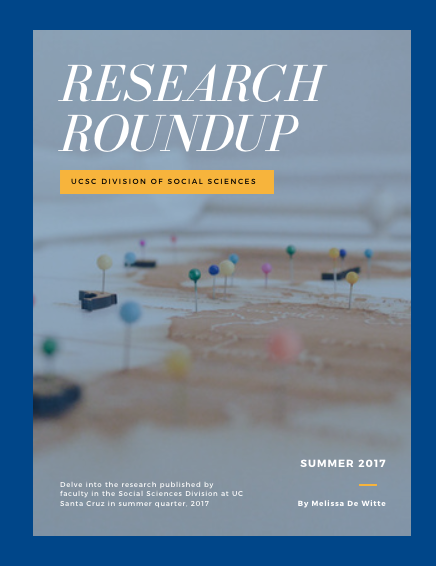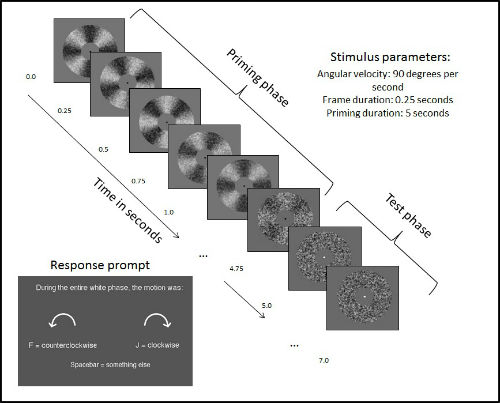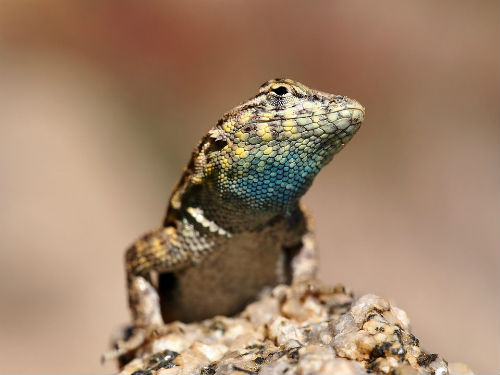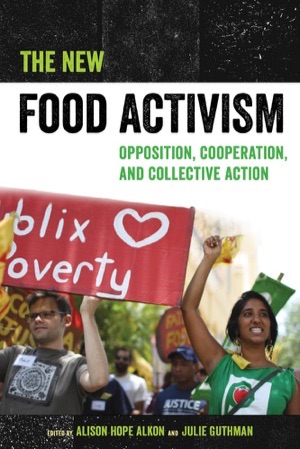Some of the many topics highlighted in this quarter’s research roundup include the stock market, mountain lions and frogs, heat waves and optical illusions, food activism and mental health policy. Also highlighted in Research Roundup are recent mentions of our faculty in the news.
Anthropology
Megan Moodie
When cultural anthropologist Megan Moodie encountered a sculpture by the famous 20th century artist Constantin Brâncuși on a 2016 visit to Romania, it inspired a deeper reflection about how art and culture cross generations and borders. The result is an essay at Sapiens.org, the online journal of the Wenner-Gren Foundation.
“Wisdom Without Country” is a blend of personal and historical narrative that describes recent attempts to claim public ownership over Cumințenia Pământului - a piece created by Brâncuși during his five decades living and working in Paris - but later purchased by a wealthy Romanian architect in Bucharest, where it has stayed since the 1950s.
Tugging at themes of nationalism, authoritarianism, cultural rights and ownership, and parenting a mixed-heritage child in a polyglot world, Moodie writes:
“That day in Bucharest when I explained Cumințenia Pământului to my son, I was so oddly sure that she belonged in Romania. It’s a compelling narrative: a fight for the cultural rights of a poor country that is often exploited by wealthier, more powerful interests. But now I wonder: Do the Romanian people really have the right to this work when it was stolen through force or treachery? Is it a work of national importance? And when is a work of art bigger than a nation?”
Economics
Daniel Friedman, Eric Aldrich and Kristian Lopez Vargas
The headlines are all too familiar: Wall Street can’t be trusted, the little guy loses, and the stock market is rigged. For a team of economists at UC Santa Cruz it’s time to stop the problems burdening financial markets. Instead of punishing bankers and investors for exploiting the market, Daniel Friedman, Eric Aldrich and Kristian Lopez Vargas believe it’s about making fundamental changes to a system that lets them get away with it.
“How can financial markets become part of the solution instead of a big part of the problem with the modern world?” asks Friedman who is exploring ways to make financial markets work better and fairer.
Aldrich and Friedman completed an in-depth analysis about IEX, an exchange that rose to fame after being prominently featured in Michael Lewis’ best-selling book, Flash Boys. IEX was developed to confront the problems caused by high frequency trading - a controversial trading practice that uses sophisticated algorithms and speed as a way to outbeat other traders.
More information about the study can be read on the economics website, in a news article titled “Gaming Wall Street.”
Daniel Friedman
It might seem puzzling that an economist would study reptiles in the Californian desert - especially their dating rituals. But to Dan Friedman, a behavioral economics professor at UC Santa Cruz, lizards are an interesting species to explore the science of strategy known as game theory.
Friedman, joined by UCSC biologist and long-time collaborator Barry Sinervo, turns to game theory as a way to better understand how evolution and ecological diversity work in this calculative way.
Recently published in the prestigious academic journal PLOS One, Friedman and Sinervo report their findings from studying the 26 generations of the side-blotched lizard, a reptile common on the Pacific Coast of North America known for their distinct, polymorphic mating habits.
Friedman’s study was featured in detail on the Economics Department website in a news article titled “Game theory, lizards, and climate change.”
Nirvikar Singh and Arshad Mirza
Nirvikar Singh released a working paper, “Mental Health Policy in India: Seven Sets of Questions and Some Answers.” Lead author is economics graduate student, Arshad Mirza. The paper addresses some of the challenges of mental health care policy and service delivery in India - a country that has one of the highest suicide rates in the world.
The paper addresses critical questions including: how quality of care can be improved in resource-efficient ways, how education can affect the scope and timing of care, how to overcome issues of affordability, and ways that policy can be reformed to widen access to treatment.
“Greater access requires affordability as well as greater availability of care providers,” write Mizra and Singh. “The experience of healthcare in general in India and even in advanced economies has shown that all of these issues are major challenges. In cases of mental health in India, the only consolation is that the starting point is so dismal that the potential for improvement is enormous.”
Education
Judith Scott
While educators have emphasized teaching students reading and writing skills, effective vocabulary instruction receives little prominence in the classroom says Judith Scott, a co-author of Vocabulary Assessment to Support Instruction: Building Rich Word-Learning Experiences (Guilford Press, 2017). “Vocabulary" is taken to mean the stock of words that one can define - like a dictionary in our heads - and that concept has limited the kind of instruction students receive and the type of assessments that are given. Scott and her collaborators address this issue in a new synthesis of research that redefines vocabulary learning and how it should be assessed in schools.
They point out that vocabulary knowledge is a key building block for learning. A strong vocabulary makes it possible for students to understand what they read, to express their ideas in writing, and to think critically about what they’ve learned. It needs a pivotal reassessment from how it is currently approached, argues Scott. As Scott and her collaborators assert: “Far too often, teaching and assessment are still dominated by a paradigm that reduces vocabulary knowledge to a list of words (with associated definitions). We contend that vocabulary can be made to reflect more closely the rich experiences that build effective word knowledge.”
Environmental Studies
Karen Holl
Karen Holl continues advancing the science of tropical forest restoration in her latest publications. She published a paper that reports on patterns of forest recovery in her long-term restoration study in Costa Rica as part of a special feature in Journal of Applied Ecology on “Toward prediction in the restoration of biodiversity.” She also published an overview of her ideas on future directions in tropical forest restoration research in a special feature in Annals of the Missouri Botanical Garden on “Ecological restoration in a changing biosphere”.
Deborah Letourneau
There are many potential benefits to increase plant diversity, says Deborah Letourneau in an article about plant diversity in sustainable agricultural systems. Plant diversity can influence the production of crops, forage and wood and can even provide a partial to complete substitution of fertilizers, pesticides, and irrigation.
Understanding plant diversity will be especially important in the years to come, Letourneau adds. As she and her co-authors emphasize:
“Over the next few decades, as monoculture yields continue to decelerate or decline for many crops and demand for ecosystem services continues to rise (due to growth in population and per capita consumption), diversification could become an essential tool for sustaining production and ecosystem services in croplands, rangelands and production forests.”
In this detailed mini-review, Letourneau addresses the obstacles to diversifying agricultural vegetation systems as well as outlining two realistic strategies for diversification: first, target intensively managed agroecosystems that are low-diversity (think monoculture crops) by doing things like planting species-rich hedgerows that border crops. Second, expand extensively managed systems (think hay meadows and rangelands) by overseeding or sowing seeds of many species.
Michael Loik
As the earth’s temperature continues to rise and the likelihood of heat waves increases, how will the planet’s ecosystems respond? Michael Loik is addressing this important question. In his latest publication, Loik shares the findings from an in-depth study he conducted with collaborators in Spain and Australia to test how heatwaves altered vegetation, specifically the native eucalypt forests in Australia.
Loik found that the ability of eucalyptus to survive heatwaves depends on where trees come from, but the factors that determine tree survival of heat waves will be different under higher CO2 conditions of the future.
Chris Wilmers and Justine Smith
Pumas, mountain lions, and humans, oh my! Chris Wilmers published two studies, including one article that examined the predatory behavior of the African leopard, one of the most elusive species in the world. Wilmers’ study is one of the first to detail how they behave. In addition, Wilmers was co-author on a study led by former graduate student Justine Smith that proved pumas are scared of people (the feeling is mutual).
Their study examined how human disturbances substantially impacted the animal’s behavior, with a substantial reduction in their feeding time.
“Our work suggests that fear-induced trophic cascades instigated by the human ‘super predator’ are likely to contribute to altered ecological dynamics in human-dominated landscapes,” Smith and Wilmers write in the study. “As the habitats used by wildlife and humans are increasingly shared, additional work is needed on the extent to which fear in top predators cascades through ecosystems.”
Politics
Sikina Jinnah
Sikina Jinnah co-authored a book chapter that builds on her 2014 book, Post-treaty Politics (MIT Press) about how and why secretariats influence global environmental politics. Written with Abby Lindsay, her Ph.D. student at American University, the chapter is a close examination of how the Commission for Environmental Cooperation (CEC) secretariat plays an important role in influencing cooperation on North American environmental politics.
The CEC was established in 1994 to implement the environmental side agreement to the North American Free Trade Agreement. Since its inception, the CEC has authored eight independent reports on environmental issues ranging from the death of migratory birds at the Silva Reservoir in Guanajuato State to opportunities and challenges of green building in Canada, Mexico, and the US.
Jinnah and Lindsay focus on the impact of these independent reports on environmental cooperation activities between these three countries. They argue that the secretariat's reports are critical in knowledge-brokering, a function that ultimately shapes the CEC agenda and political outcomes on environmental cooperation.
Jinnah writes: “For example, in response to the secretariat’s reports on the bird die-off in the Silva Reservoir and migratory bird habitat in the San Pedro River Basin, the CEC council pursued actions to implement the secretariat’s recommendations. Likewise, after the report on green building the CEC council approved new cooperation activities on this issue and credited the secretariat’s report directly with “kick starting” this work.”
In tracing secretariat influence on 3 of 7 cooperation activities directly to secretariat reports, Jinnah and Lindsay conclude that this case adds further evidence to challenge dominant assumptions in international relations scholarship that secretariats are merely functionaries of member states.They argue that secretariats can - under certain conditions - behave as actors in their own right that shape the course of international politics.
Sara Niedzwiecki
The United States and Europe are not the only global regions experiencing a surge in Right-wing populism and policy change. Latin America too is seeing right-leaning candidates and parties winning back seats both in legislature and executive branches of government.
What does this shift mean for the future of Latin America’s welfare state, asks Sara Niedzwiecki in a paper co-authored with Jennifer Pribble from the University of Richmond. Using Chile and Argentina as an example, Niedzwiecki examines what impact the recent nomination of two Right-wing presidents (Piñera in 2010-2014 and Macri in Argentina from 2015-present) in these countries had on policy. Would ideology expected from their party be consistent with any policy change affected?
Argentina and Chile’s “right turns” have not produced outright retrenchment of education, health, or income transfer policies, but rather a combination of maintenance of the status quo, policy drift, and marginal expansion,” write the authors. “This suggests that the countries’ 25-plus years of democratic consolidation and the experience of sustained left party rule have altered the politics of social policy formation and change.”
Psychology
Maureen Callanan
Thanks to a unique partnership with Children’s Discovery Museum of San Jose, Maureen Callanan explored how parents engage with their children’s everyday thinking and learning. Callanan focused on the Mammoth Discovery exhibition, a set of interactive exhibits that put full-scale replica fossils into children’s hands.
How parents interacted with their children at the exhibit was key to children’s engagement. Callanan found that children engaged more when their families connected the exhibit to personal experiences and evidence rather than to scientific explanations.
“Our findings show that parents varied in their use of the different types of sense-making talk and that this variation was also connected to the nature of the exhibit,” Callanan and her co-authors write. “More importantly, parents’ engagement in these types of talk predicted children’s engaged conceptual talk, in particular, their own articulation of inferences, comparisons, and explanations about paleontology.”
The study was also featured on the Campus News website.
Nicolas Davidenko and Nathan H. Heller
In a followup to his recent Journal of Vision paper, Nicolas Davidenko and Nathan H. Heller (cognitive science, '16), a former UCSC undergraduate student and member of Davidenko’s research lab, show not only that people can be primed to see illusory motion in randomly refreshing pixel arrays, but that the direction of that illusory motion depends on the velocity of the priming motion.
When people are primed with a fast-moving motion pattern, the subsequent illusory motion goes in the opposite direction of the prime (just like in the classic motion aftereffect, or waterfall illusion), says Davidenko. However, when people are primed with a slow-moving motion pattern, the subsequent illusory motion goes in the same direction of the prime (i.e. if the priming motion is clockwise, the illusory motion continues in a clockwise direction).
“The dissociation between negative and positive priming as a function of the priming velocity reveals two separate systems of motion processing in the human visual system that respond differently to adaptation and are differentially sensitive to stimulus velocity,” Davidenko describes of his findings.
Heller, who is the paper’s first author will be matriculating into the Scientific Computing and Applied Mathematics (SciCAM) Masters Program here at UCSC this fall.
Campbell Leaper
Campbell Leaper co-authored "Sexism in Childhood and Adolescence: Recent Trends and Advances in Research." In the paper, Leaper highlights how the research on sexism in childhood and adolescence has steadily increased over the last two decades. Despite the many advances toward gender equality during this period, sexism persists in U.S. society - even during childhood.
Leaper and his colleague review recent research in three areas:
First, they examine work on how conceptions of gender identity and gender expression are expanding for many children. Views of gender nonconformity as somehow disordered are being challenged. Second, the authors review some of the subtle ways that sexism occurs in school achievement. For example, many girls face subtle forms of discouragement from pursuing STEM-related subjects. Also, in some communities, rigid conceptions of masculinity may undermine boys' school success. Finally, the problems associated with sexual harassment and sexualized gender stereotypes are discussed. Most adolescents in the U.S. and other countries experience sexual harassment in schools. This is especially likely for girls and for gender-nonconforming youth. Furthermore, sexualized messages in the media and other sources negatively affect the self-concepts of many girls as well as many boys.
Social Sciences
Julie Guthman edited a new book, The New Food Activism, Opposition, Cooperation, and Collective Action (University of California Press, 2017). The book explores a new direction in food activism, focusing on a deeper and more complex engagement with social, racial, and economic justice issues.
“The goal of this book is to inspire food scholars, students, and activists to engage with projects and campaigns that move beyond the provision of market-based alternatives and towards a fight for just and sustainable food,” says Guthman.
Struggles against pesticides and GMOs, efforts to improve workers’ pay and conditions throughout the food system, and ways to push food activism beyond its typical reliance on individualism, consumerism, and private property are all topics explored in the book.
“We believe that collective campaigns rooted in the realities of those most harmed by the industrial food system and alternatives that push back against neoliberal strategies and subjectivities can nourish new political possibilities within the world of food activism.”
In the News
Anthropology
The Guardian unpacks the science and history that debunks the long-running myth: women are the weaker sex. Journalist Angela Saini talked to Adrienne Zihlman to better understand the female role in human evolution.
“Women have to reproduce. That means being pregnant for nine months. They’ve got to lactate. They’ve got to carry these kids. There’s something about being a human female that was shaped by evolution. There’s a lot of mortality along the way that really can account for it,” Zihlman is quoted as saying.
“There is something about the female form, the female psyche, just the whole package, that was honed over thousands and thousands, even millions, of years to survive.”
Economics
Research by economists George Bulman and Rob Fairlie was featured in an article in The Economist about the impact of technology on the education of children. The article referenced their research about access to technology and educational outcomes, specifically their findings that access had “little or no positive effect” on outcomes such as test scores.
Environmental Studies
Chris Wilmers and Justine Smith’s study about the impact of human interaction on mountain lion behavior was circulated widely by international media, including the Washington Post and LA Times.
Politics
Mark Massoud
The San Francisco Chronicle published an op-ed by associate politics professor Mark Fathi Massoud that celebrates Mexico's plurality and diversity.
Read the article on the San Francisco Chronicle website.
Psychology
Ben Storm
Associate professor of psychology Ben Storm was quoted in the New York Times' Sunday Review section in an article entitled, "Forgot Where You Parked? Good."
The article addresses the potential benefits of forgetting. Here is an excerpt from the article:
Studies show that forgetting can even promote better reasoning. In a study released in 2011, a group of psychologists gave some subjects a problem-solving exam. Known as the Remote Associates Test, it requires a subject to read three words (like “playing,” “credit” and “report”) and then come up with a word that would link all three ideas (“card”).
The researchers added a wrinkle to the test, and they provided the subjects with some “misleading” training, giving the subjects the wrong cues before they took the exam. The results showed that people had to push the misleading association out of their minds to solve the problem. “Creative cognition,” the authors wrote, “may rely not only on one’s ability to remember but also on one’s ability to forget.”
Benjamin Storm, a psychologist at the University of California, Santa Cruz, led the 2011 study, and he now takes the idea of forgetting pretty seriously. If Professor Storm writes a paper, he’ll start it early so that he has time to revisit his writing. Similarly, he will read important articles twice with a long break in between so that he gains more from the text.
Storm researches human memory, with a special focus on the causes and consequences of forgetting. At his UCSC Memory Lab, he and his team explore the role of forgetting in resolving competition during retrieval, overcoming fixation in thinking and problem solving, updating autobiographical memory, and facilitating new learning.





